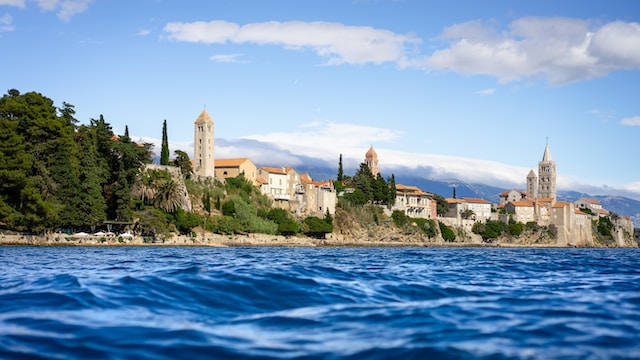Its borders with Slovenia to the northwest, Hungary to the northeast, Serbia to the east, Bosnia and Herzegovina to the southeast, and Montenegro to the southeast. Also, the Adriatic Sea to the southwest defines this Southeast European nation. The city of Zagreb serves as both the nation’s capital and largest metropolis. The total land area of the country is equivalent to 56,542 square kilometers, and its population is somewhere in the neighborhood of 4.1 million people. Croatian is the country’s official language, and a sizeable portion of the population is fluent in the language. The country is known for its beautiful coastline, which includes over 1,000 islands, as well as its medieval cities, national parks, and rich cultural heritage. It is a well-liked vacation spot, especially in the summer when tourists flock there to take advantage of the pleasant weather and beaches. It is a member of the European Union, NATO, and the United Nations, among other international organizations. Finding work in this territory can be challenging, especially if you are not fluent in the Croatian language. However, some industries are open to hiring foreigners, particularly those who have specialized skills or work in sectors such as tourism, IT, and finance. Another option is to network with people in your industry and attend job fairs and events. Additionally useful for networking and job searches, LinkedIn.

These other articles might interest you:
Finding work in the country
Getting work as an expat in this country might be challenging because the job market here is competitive, and salaries are generally lower than in other European countries. However, if you are an expat living within the territory and are seeking work, the following are some actions you can take:
Research the job market
Study the labor market to gain an understanding of the many types of jobs that are available, the credentials and abilities that are required, and the average salaries that can be expected. To find job opportunities here, expats can start by searching online job boards, such as MojPosao, and Posao. hr, and Indeed. hr. They can also contact recruitment agencies that specialize in their field of work.
Network
The job market places a premium on the ability to network effectively. Job seekers need to make connections with recruiters and headhunters, visit job fairs, and communicate with professional associations. They can also join expat clubs and go to social events where they can mingle with both locals and other internationals.
Language proficiency
The ability to speak the native language makes expats stand out over others during their application. Expats who cannot speak the Croatian language should take language classes, as this will boost their chances of getting work in the relevant field.
Work permit
If you are not a citizen of the EU, you will need to obtain permission to work here. Applicants can find information on work permits and their usage by contacting the embassy or consulate in their native country.
Curriculum vitae and cover letter
A curriculum vitae and cover letter are necessary components of a successful job application. Applicants must be sure they are professionally written, specific to the job for which they are seeking, and promote their experiences and skills to recruiters.
Apply for jobs
As they apply for jobs, foreigners should only send resumes for jobs that match their education and experience. They have to ensure all rules for the application are duly followed before submitting all of the relevant documents.
It is important to note that the job market here is competitive, and salaries are generally lower than in other European countries. However, the cost of living within the territory is also lower, and the country offers a high quality of life, beautiful scenery, and a rich cultural heritage.




